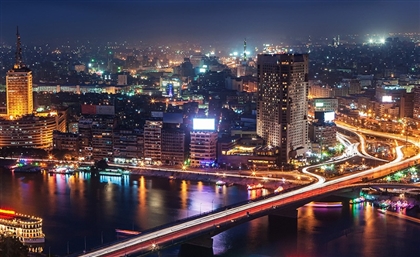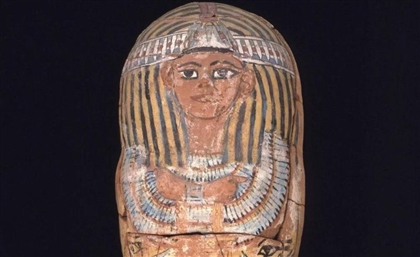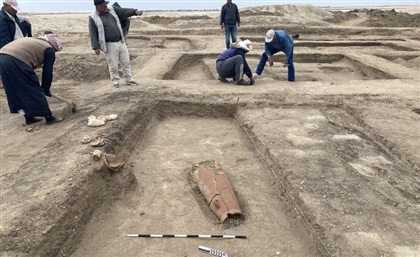Sources of Perception
Why are the likes of CNN and the Brookings Centre so off the mark when it comes to reporting on Egypt? It's not a big conspiracy, as Adam Mowafi explains, it's just that scandal sells.

It is fascinating to see how international reactions to events can be so far off from the reality on the ground. To pin point the cause of this disparity, you only have to look at how the rest of the world gets its information: news media for the general public and a combination of government intelligence and think tanks for those in the foreign offices of other nations.
Many people are now starting to think there is a conspiracy from news outlets such as the New York Times and CNN for not portraying the situation in Egypt as it really is. Well, I do not think it is a conspiracy but as a friend who works in one such news agency told me, another revolution is just simply not a good story. Taking a step back and looking at news as a commercial product, it becomes much clearer: it’s not about telling news; it's about selling news.
Here are two potential headlines:
Egypt Continues It's Revolution, Striving For Real Democracy
Military Coup In Egypt, Country On Brink Of Civil War
I would hazard a guess that the latter is far more interesting to your average Joe, sitting at home 3000 miles away, debating whether to watch CNN or A Good Day to Die Hard. You also have to bear in mind that the rest of the world has not been paying much attention to Egypt over the last year so all of this overthrowing of Morsi business came as quite the shock. The rest of the world really had no idea that a constitution was forced upon us and that in December last year Morsi sent a militia to kill protestors outside the presidential palace or that in January there was massacre of 50+ people due to Morsi's orders to kill protestors in Suez. They are also blissfully unaware how channels like Misr25, paid for by the Brotherhood, have basically promoted killing of Christians and Shiites. No, no - Joe just thinks Egypt is being an "immature" democracy and we just decided randomly to overthrow a government because that is nice and easy narrative for the news agenices to sell.
The other issue is foreign governments and their sources of information. The US in particular tend to be advised about Egypt by what are essentially Islamist-funded think tanks like the Brookings Doha Centre where the information has no real relevance to the reality on the ground but is instead presented in an easily consumable way for some government employee in the US state department to absorb. It seems reality doesn’t compare to a well written report sent once a week.
To quote Hussein Ibish's piece on "How not to write about Egypt":
“The upheaval in Egypt inevitably produced a torrent of American commentary, a great deal of which was clichéd, glib, or simply banal. But four articles stand out as particularly instructive examples of how not to write or think about change in Egypt and the broader Arab world.
The most insidious was a commentary in the New York Times by Shadi Hamid of the Brookings Doha Centre. Behind a veneer of reasonably arguing (as all sane commentators do) that a crucial challenge is how to reincorporate the Brotherhood into the emerging new Egyptian political order, the article essentially reads like a Brotherhood press release.
Hamid studiously avoids any mention of the context in which the entirety of organized social and Egyptian political life came together to reject the continued legitimacy of Brotherhood governance, or any mention of its misrule whatsoever. Instead, he sets up a false binary. Either the government of President Mohamed Morsi had to be allowed to continue in a manner unacceptable to an extraordinary unanimity of other Egyptian actors, or actions taken to end his misrule invite, and almost demand, a violent reaction.
Hamid writes Islamists will have "good reason" to question “whether democracy still has anything to offer them," as if the Brotherhood ever had any real commitment to democracy other than as a tool for gaining power. Hamid lards his apologia with repeated grim references to al-Qaeda, and two of the most extreme Egyptian Islamists of all time: Sayyid Qutb and Ayman al-Zawahiri.
The logic is clear: Egyptians must either tolerate arbitrary rule and bullying by the Brotherhood or they are inviting, provoking, and even justifying al-Qaeda-style responses. It's no surprise that Brotherhood spokespersons in Egypt have been increasingly saying exactly the same thing, often in the same language.”
Unfortunately, we do not live in a moral word and Egypt has been so subservient to the West throughout Mubarak’s and Morsi's reigns, that the only way to get our voices truly heard in the future is to NOT accept the narrative people like Shadi Hamid and CNN are trying to force on us - that Egyptians are naïve and should have let Islamists rule. What happened on June 30th and beyond was a continuation of a revolution and a clear message that we will not accept a second rate democracy.
- Previous Article I Got Banged!
- Next Article The Orphan Master's Son
Trending This Week
-
May 01, 2024
























